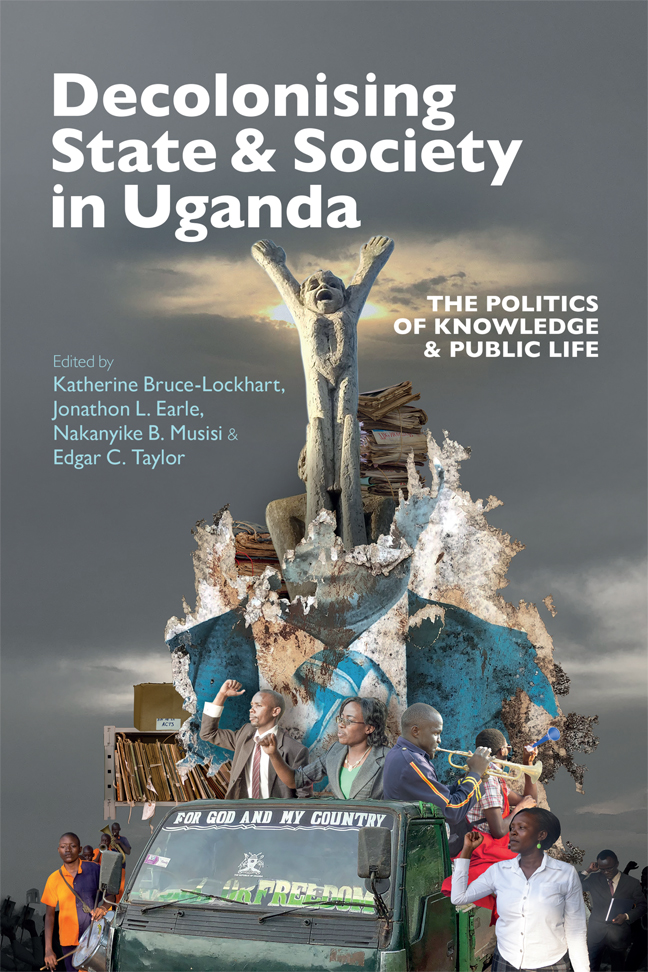12 - Decolonising Identity and Citizenship: Revisiting the Historicity of the Indian Question in Uganda
Published online by Cambridge University Press: 15 February 2024
Summary
During the colonisation of Uganda, the British brought Indians who worked as soldiers, support staff and indentured labourers to facilitate the process. Their subsequent settlement was encouraged by colonial officials, notably Sir Harry Johnston. By 1926 when the creation of Uganda as a new country was completed, Indians had been associated with its formation and transformation. However, their Ugandan citizenship remained contestable, and Afro-Asian relations were interspersed by suspicions, tensions, contestations, and direct and indirect struggles. Yet both Indians and Africans had for long been British subjects in a newly created Uganda. So, why were Afro-Asian relations characterised by contestations? Why did the citizenship of minority immigrant groups like the Banyarwanda, Ja-Luo (from Kenya) and Indians become an issue at the dawn of independence to the extent of expelling them? Why were generations of Indians excluded from Uganda’s Constitutions, which disqualified them from the superior citizenship by birth, yet their residence predated the completion of Uganda as a country?
To answer these questions, it is important to delve into the historicity of the ‘Indian Question’ in Uganda, and decolonise mainstream commonplace explanations. The contextual historical political-economy dynamics that constructed and reproduced identity controversies of minority immigrant groups like the Ugandan Indians, Banyarwanda, and Ja-Luo were often obscured by mainly ahistorical explanations. Asiimwe outlined some of the dominant discourses that sought to explain the Indian factor in Uganda. Some narratives maintain that Indians were mere victims of Idi Amin's dictatorship; however, there was support for group re-alignments and some sections of society continue to be apprehensive about the return of Indians. Other discourses foreground the closed nature of Indian society; their association with the colonial project and aloofness from general socio-political undertakings like the independence struggles. Other arguments attribute tensions to concerns about the spectacular success and dominance of an ‘alien’ minority group at the expense of ‘citizens’. In this context, ‘anti-alien extremism’ is sometimes equated with xenophobia/racism.
In Uganda, some narratives advanced the pre-ordained capabilities to explain the success of Indians compared to ‘natives’. These underline the frugality, discipline, and business acumen of early Indians like Alidina Lalji Visram and the petty traders (dukawallahs). Ramchandani maintains that the Indian duka had penetrated even the remotest areas of the Protectorate such as Karamoja.
- Type
- Chapter
- Information
- Decolonising State and Society in UgandaThe Politics of Knowledge and Public Life, pp. 269 - 294Publisher: Boydell & BrewerPrint publication year: 2022



